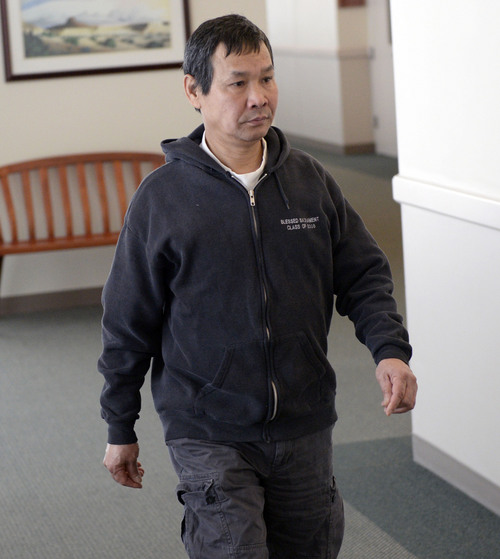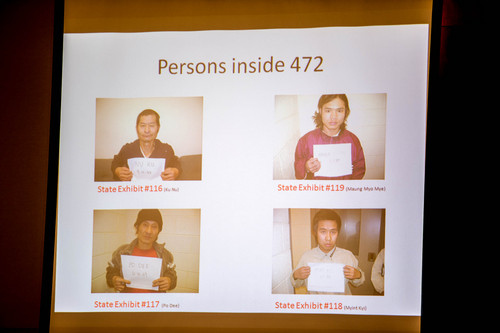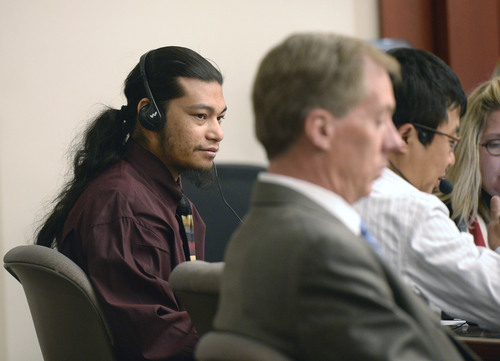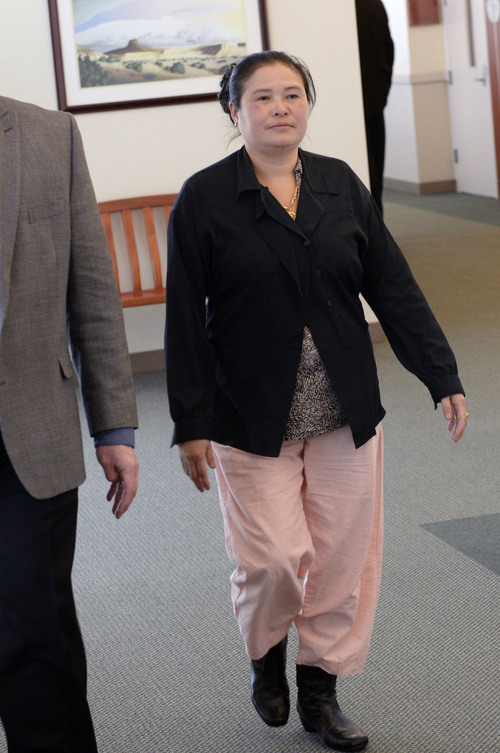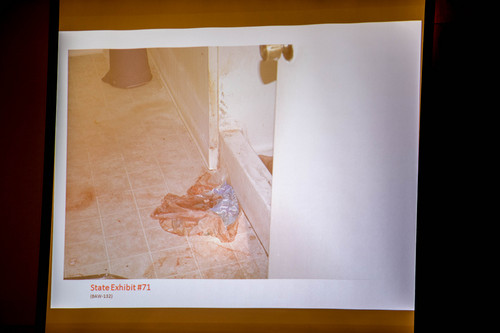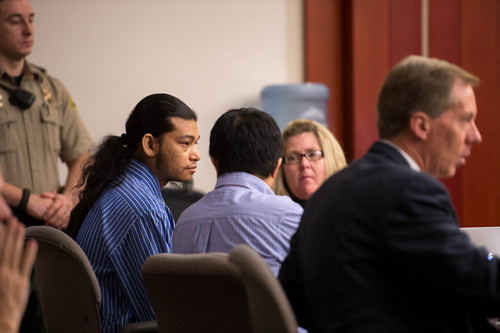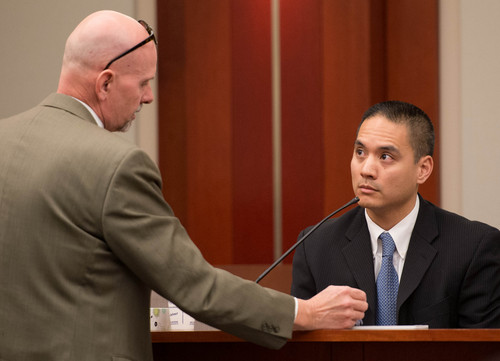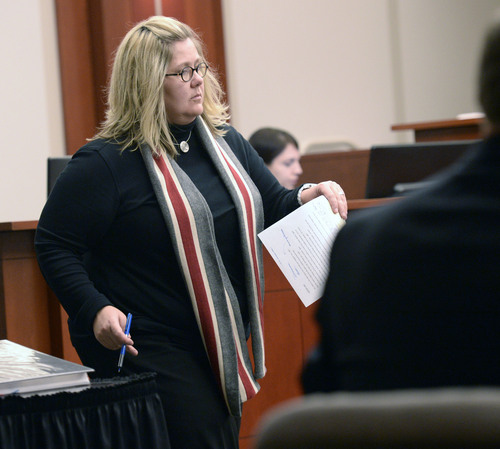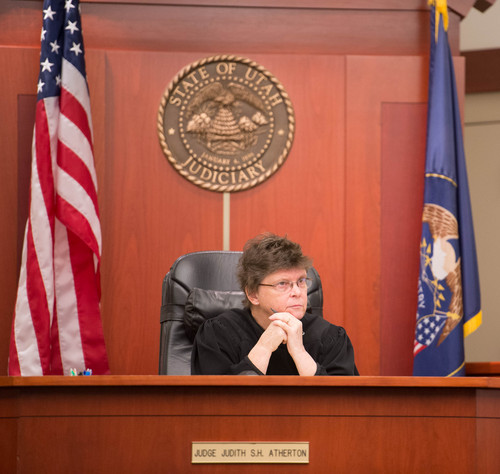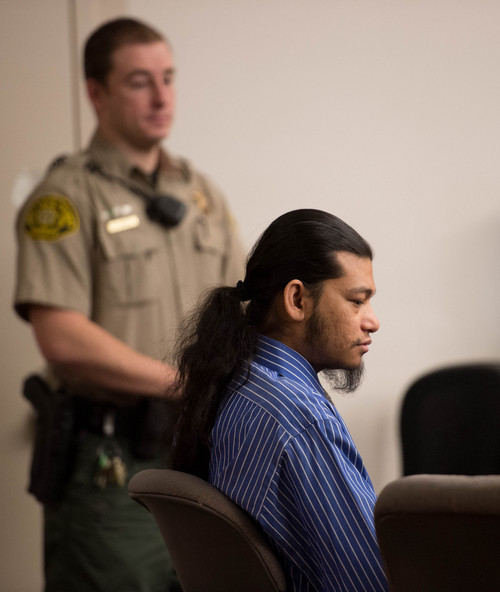This is an archived article that was published on sltrib.com in 2014, and information in the article may be outdated. It is provided only for personal research purposes and may not be reprinted.
This family is no stranger to loss.
It began decades ago, as mother and father were forced to flee the jungle of Burma for crowded refugee camps in Thailand. Later, when the couple's oldest sons were still small, the family's refuge burned to the ground.
They would eventually leave everything behind and cross oceans to chase the promise of a better life Utah.
But none of this could prepare them for the greatest loss of their lives — Hser Ner Moo, the only daughter, the only sister, the only niece these relatives ever had.
"She was my one, my only one," her father, Cartoon Wah, said through an interpreter, translating from his native tongue of Karen. "I have lost many things in my life, but this was the biggest loss of my life. ... Now I have to carry on living with this broken heart and support my family."
Wah, a slight man from the country now known as Myanmar, took the witness stand Wednesday morning to testify in the case against the man accused of killing his child.
It was the second day of testimony in a three-week trial prosecutors hope will convince a jury that Esar Met is the man responsible for the little girl's death on March 31, 2008.
Esar Met, also a Burmese refugee, is charged in 3rd District Court with first-degree felony counts of child kidnapping and aggravated murder for the slaying of Hser Ner Moo, 7. If convicted, he could spend the rest of his life behind bars.
Wah began to cry as he recalled the bright and precocious girl he and his wife, Pearlly Wa, brought with them from a refugee camp in Thailand to the South Parc apartments in South Salt Lake.
Hser Ner Moo was born in "during the rainy season," the murdered girl's father recalled. She loved to learn and to teach. Her favorite color was pink. She was a happy child who played games and jumped rope and rode around on the back of her father's bicycle.
Her older brothers recalled the home they shared — full of noise, full of life.
That, they said, was Hser Ner Moo.
"She was small but she was loud," testified her brother Kyi Kyi Po. "She brought everyone happiness."
The home grew silent in the days after her death.
A family muted by grief, their home has not been filled with the noise or joy they once knew in nearly six years.
"This is the biggest loss of my life," Hser Ner Moo's mother, said between prolonged sobs. "If you gave me the whole world of happiness to exchange for this little girl, I would say no. Nothing can pay me back because I only had one. Whenever I see little girls run around, it breaks my heart."
Prosecutors allege that Met abducted the child on March 31, 2008, brought her down to his basement apartment — just doors away from the girl's own home — and sexually and physically assaulted her before killing her.
Defense attorneys have said that Met and the child were friends and playmates, that he cared for her and other children in the apartment complex.
No one saw Met abduct or slay the girl, defense attorneys said in opening statements Tuesday, adding the evidence the prosecution does have — DNA collected from Met's denim jacket and from under the child's fingernails — were remnants of games the two had played days before.
As the father testified Wednesday morning, 11 jurors watched in silence. One woman wiped tears from her eyes as the man told the court of his heartache.
"The night [she disappeared] my wife was crying," Wah said. "It had been too long, so we assumed, we thought maybe our daughter is already dead."
Defense attorneys pressed the father on the search for his daughter.
Wah had paid an early visit to Apartment 472, where Hser Ner Moo's body was later found. He looked for her discarded shoes at the door — a Karen tradition the girl usually obeyed — but saw none.
The men who lived there with Met, at least one of whom knew the child's family, did little to help. They told him they hadn't seen the girl, Wah testified, then went back to watching TV.
That's because, defense attorneys implied, the four roommates with whom Esar Met had been assigned to live may be responsible for Hser Ner Moo's disappearance and death.
The child's oldest brother Ker Ker Po told jurors that he knew the men in Apartment 472. He went over there to drink beer and watch movies. They were his friends.
But Ker Ker Po never met the man who lived downstairs. He saw him once, briefly, but he didn't care to speak to him, he said, because he knew him to be a Muslim man of Indian origin.
Met's people are different, Ker Ker Po said. They speak different languages and practice different religions. They don't share customs. They don't mingle.
Met, who had also been living in a Burmese refugee camp in Thailand before moving to the U.S., arrived in the apartment about a month before the slaying. The other men had been there much longer.
Defense attorneys painted a picture of Met's relationship with his four roommates as cold — stemming from their negative perception of his ethnic background.
Hser Ner Moo's parents said they didn't know their daughter ever went to the apartment to play with Met. The father typically did not allow her to enter the homes of others — particularly those who were not ethnic Karen.
As the family spoke through a translator, Met listened to one of his own, who translated their testimony into Burmese for the defendant.
His expression changed little Wednesday as the parents broke down into sobs that shook their whole bodies. He nodded occasionally, leaned forward in his seat. But he did not appear to say a word to his translator or his attorneys.
Met's roommates were arrested on April 1, 2008, but later released.
Police said at the time that the four men were not home when the girl was killed and did not know her body was in Met's basement bathroom.
On Tuesday, prosecutors showed graphic photos of the girl crumpled and bent to fit into the bathtub in Met's basement apartment. She was lying facedown in her own blood.
This, officers testified, was how they found her at about 10 p.m. on April 1, 2008. At that point, she had been missing for nearly 32 hours. Before the police told them what they found, Hser Ner Moo's family had begun to fear the worst.
"At first, I had hope that she would come home and she would be somewhere in the apartment complex," the mother said. "Later in the evening, when I didn't see her, I thought, 'This is big. Something really bad happened to my family.' "
The child's aunt, Eh Wah, had been asked to care for the girl and her two brothers while their mother was at a dentist appointment the afternoon of the day she disappeared.
The child was happy and boisterous, singing as she ran up and down the stairs of her family's home. At 1 p.m., the aunt testified, the girl sat with her to supervise the feeding of her infant brother.
"I was the new babysitter and she was my teacher," Eh Wah said, smiling.
That was the last time she saw her. Moments later, the girl called out asking if she could go play. She didn't specify where or with whom.
"The exact words she used were 'I'm going to go play for just a little while,' " the aunt testified through an interpreter. "A little while could mean a minute. ... I thought she was going to play downstairs."
Defense attorneys implied Wednesday that Hser Ner Moo had an independent streak and would go to play at friends' homes without her parents' expressed permission.
But the mother insisted her daughter would never stray for long.
After their testimony, the parents took seats at the back of the courtroom. They had declined to attend Tuesday's proceedings and may want to leave during certain points of the trial, prosecutors said, particularly when graphic evidence is shown.
All three of Hser Ner Moo's older brothers — Sunday Moo, Kyi Kyi Po and Ker Ker Po — testified Wednesday. The child's uncle, who was among the last to see her before she disappeared, will be called to the stand Thursday morning.
Met has pleaded not guilty to the charges against him.
The trial is expected to continue through Jan. 24.
Twitter: @Marissa_Jae —
A Missing Peace
Reporter Julia Lyon traveled to Thailand to trace the journeys of Hser Ner Moo and Esar Met from the Mae La refugee camp to Salt Lake City. Her series, reported in collaboration with the International Reporting Project, also explored the challenges their families and other refugees face in America. See the series at http://extras.sltrib.com/thailand.




